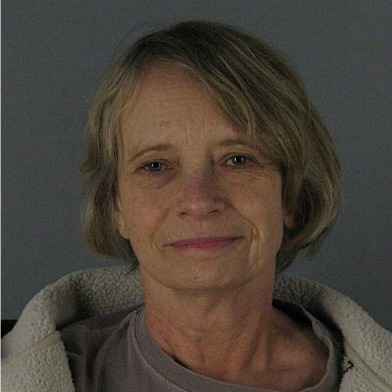 A federal jury in the cocaine-fraud trial of former San Francisco police crime laboratory technician Deborah Madden heard a tape Wednesday in which she admitted taking small amounts of cocaine from the lab in 2009.
A federal jury in the cocaine-fraud trial of former San Francisco police crime laboratory technician Deborah Madden heard a tape Wednesday in which she admitted taking small amounts of cocaine from the lab in 2009.
Madden, 62, of San Mateo, is on trial in the court of U.S. District Judge Susan Illston in San Francisco on a federal charge of obtaining cocaine by means of fraud, deception or subterfuge.
In a recorded interview played for the jury this morning, she told two police inspectors in 2010 she took trace amounts of “stuff that spilled” when she weighed cocaine evidence in the fall of 2009.
“If some of it, you know, fell on the counter after I put the stuff away, rather than just throw it in the garbage, which is what I normally did, yeah, I take a little bit of that,” Madden told the investigators.
“I considered it waste, so I didn’t really think about it,” Madden said in the recording.
But “I didn’t scoop it out of evidence,” she maintained.
The tape appears to be the only time the jury will hear Madden’s voice during the four-day trial, because her attorney, Paul DeMeester, does not plan to call Madden or any other defense witnesses to the stand.
Madden’s defense argument, which DeMeester outlined to the jury in his opening statement on Tuesday, is that her actions didn’t have the element of subterfuge required for a conviction under the federal law.
Madden’s alleged pilfering of powdered cocaine from the lab’s drug analysis unit contributed to the Police Department’s decision to close the unit in 2010 and the San Francisco district attorney’s dismissal of hundreds of criminal cases that depended on evidence from it.
If convicted of the federal charge, she could be sentenced to up to four years in prison.
Testimony in the trial is expected to be completed on Thursday and the case will go to the jury after closing arguments on Monday.
Madden went on leave from her civilian job at the lab when she entered an alcohol and drug rehabilitation facility on Dec. 8, 2009, and officially retired on March 1, 2010, after a 29-year career.
The 90-minute interview was recorded on Feb. 26, 2010, and a transcript was previously made public two months later. Prosecutors played 57 minutes of it for the jury.
Madden told the inspectors in the interview that she began taking cocaine given to her by an unidentified friend in the summer of 2009 in an unsuccessful effort to control her drinking.
As the interview progressed, she admitted taking “some stuff that spilled, yeah I took some of that” and eventually said she took spilled cocaine home in her pocket on approximately five occasions between October and December 2009.
But Madden repeatedly said “I don’t know” when asked about 11 evidence envelopes that appeared to have been suspiciously restapled and about one envelope that appeared to be missing nearly 3 grams of powdered cocaine when it was reweighed.
“I’ve seen tons of times when we reanalysis someone else’s dope, the weights are way off,” she told the inspectors.
Questions about possible cocaine theft began after a co-worker at the drug unit discovered on Nov. 24, 2009, that cocaine evidence envelopes in her evidence locker had been disturbed.
In mid-December, Madden’s sister told the unit’s supervisor that Madden had entered the rehabilitation center and that the sister had given the center a vial of white powder she found in Madden’s bedroom. The vial was later found to contain cocaine.
In a search of Madden’s Peninsula home on March 3, 2010, investigators found an additional 0.09 grams of cocaine in her bedroom, wrapped in wax paper similar to the crime lab’s weighing paper.
Madden was charged in San Mateo County Superior Court with cocaine possession in connection with that discovery. She pleaded guilty on June 3, 2011, and was sentenced to undergo drug counseling.
Madden was never charged in the state court system with stealing cocaine from the San Francisco police laboratory, however.
The investigation and possible prosecution on such a charge was referred to the state attorney general’s office, which announced in December 2010 it would not file any charges against her because of lack of sufficient evidence.
Federal prosecutors then stepped in and obtained a U.S. grand jury indictment on Dec. 1, 2011, on the count of obtaining a federally controlled drug by means of subterfuge.
In comments after Madden was indicted, DeMeester said the federal charge appears to be most frequently used against doctors who fraudulently obtain excess amounts of prescription drugs for their own use or for sale.
Julia Cheever, Bay City News
Want more news, sent to your inbox every day? Then how about subscribing to our email newsletter? Here’s why we think you should. Come on, give it a try.









